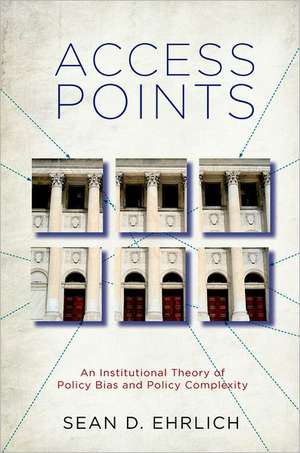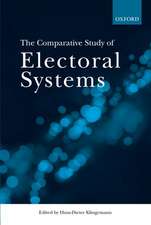Access Points: An Institutional Theory of Policy Bias and Policy Complexity
Autor Sean D. Ehrlichen Limba Engleză Paperback – 13 oct 2011
| Toate formatele și edițiile | Preț | Express |
|---|---|---|
| Paperback (1) | 190.24 lei 31-38 zile | |
| Oxford University Press – 13 oct 2011 | 190.24 lei 31-38 zile | |
| Hardback (1) | 399.41 lei 31-38 zile | |
| Oxford University Press – 13 oct 2011 | 399.41 lei 31-38 zile |
Preț: 190.24 lei
Preț vechi: 221.46 lei
-14% Nou
Puncte Express: 285
Preț estimativ în valută:
36.40€ • 38.01$ • 30.13£
36.40€ • 38.01$ • 30.13£
Carte tipărită la comandă
Livrare economică 24-31 martie
Preluare comenzi: 021 569.72.76
Specificații
ISBN-13: 9780199737543
ISBN-10: 0199737541
Pagini: 208
Ilustrații: 3 b/w illus.
Dimensiuni: 234 x 155 x 15 mm
Greutate: 0.28 kg
Editura: Oxford University Press
Colecția OUP USA
Locul publicării:New York, United States
ISBN-10: 0199737541
Pagini: 208
Ilustrații: 3 b/w illus.
Dimensiuni: 234 x 155 x 15 mm
Greutate: 0.28 kg
Editura: Oxford University Press
Colecția OUP USA
Locul publicării:New York, United States
Notă biografică
Sean D. Ehrlich is Assistant Professor of Political Science at Florida State University. His research focuses on international and comparative political economy, particularly how the preferences of the public and of policymakers interact to determine economic policymaking.











